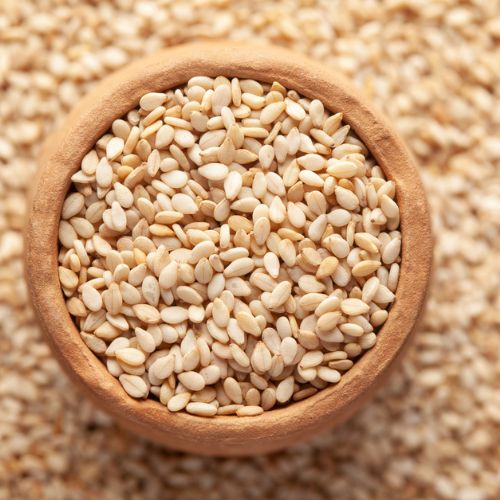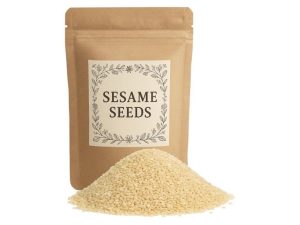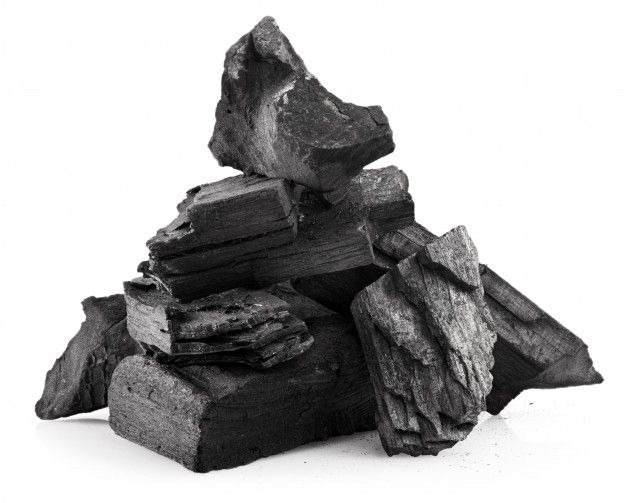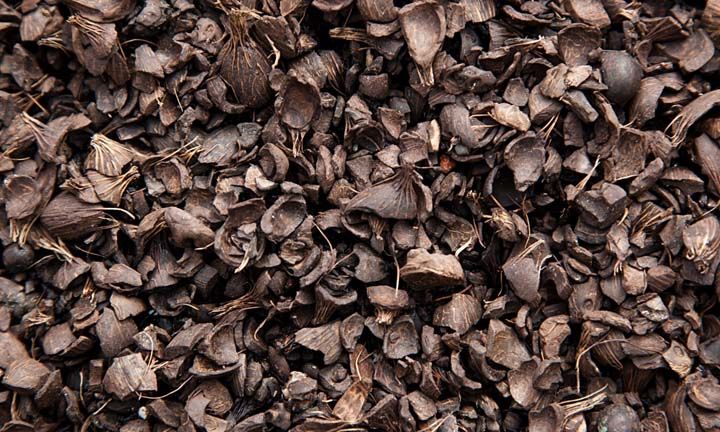What it is
Sesame seed (Sesamum indicum) is one of the oldest oilseed crops known to humanity, cultivated for over 3,000 years. It is highly valued for its rich oil content, nutty flavor, and extensive uses across food, pharmaceutical, and cosmetic industries. Sesame seeds are tiny, oval-shaped, and come in different varieties, including white, brown, and black sesame seeds.
Nigeria is one of the largest producers and exporters of sesame seeds in Africa, contributing significantly to the global supply. The crop thrives in Nigeria due to its adaptability to tropical climates and relatively low input requirements. Sesame seeds are considered a cash crop and are among the top non-oil export products, providing foreign exchange earnings for the country.
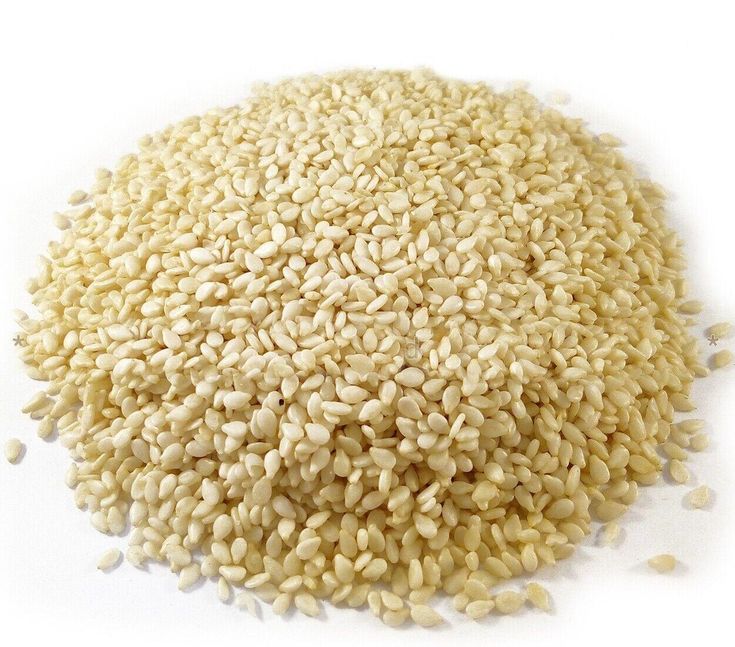
Uses of Sesame Seed
Sesame seeds are highly versatile and have applications in multiple sectors:
-
Food Industry
-
Ground into sesame paste (tahini) used in hummus and sauces.
-
Processed into sesame oil, widely used for cooking, frying, and seasoning.
-
Used as toppings on bread, biscuits, confectionery, and snacks.
-
Incorporated in energy bars, halva, and health foods due to its high protein and fiber content.
-
-
Cosmetics and Personal Care
-
Sesame oil serves as a carrier oil in lotions, creams, and hair products.
-
Used in massage oils due to its skin-nourishing properties.
-
Acts as a natural sunscreen and skin moisturizer.
-
-
Pharmaceuticals & Medicine
-
Used in Ayurvedic and traditional medicine for its healing and detoxifying properties.
-
Sesame oil is used as a solvent for injectable drugs.
-
It contains antioxidants and lignans beneficial for reducing cholesterol and managing blood pressure.
-
-
Industrial Applications
-
Used in making paints, soaps, and lubricants.
-
Oil residue (sesame cake) serves as a high-protein feed for livestock.
-
Nutritional Value (per 100g of seeds)
-
Calories: 573 kcal
-
Protein: 17 g
-
Carbohydrates: 23 g
-
Fats: 50 g (with high content of unsaturated fatty acids)
-
Calcium: 975 mg
-
Iron: 14.6 mg
-
Magnesium: 351 mg
-
Rich in vitamins B and E, antioxidants, and lignans
This makes sesame a superfood, especially in vegan and vegetarian diets.
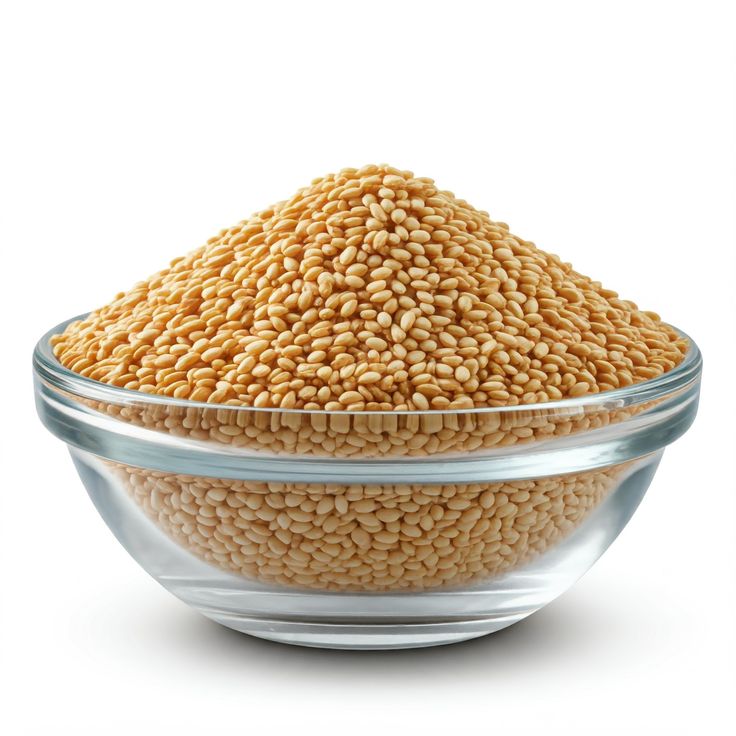
Global Market & Export Potential
-
Top importing countries: China, Japan, Turkey, Vietnam, South Korea, UAE, and European nations.
-
Global sesame seed demand is steadily rising, particularly in the health-conscious and plant-based food markets.
-
Nigeria is ranked among the top 5 global exporters of sesame seeds, producing over 500,000 metric tons annually, with more than 80% destined for export.
Sesame Seed Export from Nigeria
Nigeria’s sesame seeds are in high demand globally due to their:
-
High oil content (45–55%)
-
Excellent aroma and nutty flavor
-
Availability of both white and brown varieties
Export Specifications
-
Varieties: White Sesame Seed, Brown Sesame Seed, Black Sesame Seed
-
Moisture content: ≤ 7%
-
Purity: 98–99.9% (depending on grade)
-
Oil content: 45–55%
-
Free fatty acid: ≤ 2%
-
Admixture: ≤ 2%
-
Packing: 50kg polypropylene bags or as per buyer’s request
-
Forms available: Whole seed, hulled seed, and processed sesame oil
Packaging Options
-
50kg PP Bags (most common for bulk export)
-
25kg Cartons or Bags (medium-scale buyers)
-
Custom Branded Packs (for supermarkets and retail)
-
Bulk Containers (20ft/40ft FCL) for international shipping
Harvesting & Processing in Nigeria
-
Harvesting: Done when seed capsules turn yellow and begin to crack.
-
Threshing: Seeds are separated from pods.
-
Cleaning: Mechanical and manual cleaning to remove dust, stones, and impurities.
-
Hulling (optional): Removing the outer shell for a smoother texture and better oil yield.
-
Drying & Sorting: Ensures long shelf life and compliance with international standards.
HS Codes for Sesame Seed
-
12074000 – Sesame seeds, whether or not broken
-
15155000 – Sesame oil and its fractions
-
23069090 – Sesame seed oil cake (residue after oil extraction)
Forms of Export
-
Raw Sesame Seed – whole, unhulled or hulled
-
Processed Sesame Products – tahini, sesame oil, sesame powder
-
Sesame Cake – by-product for animal feed
UK Market Demand
-
The UK has a growing demand for sesame seeds due to:
-
Increasing health-conscious population.
-
Rising popularity of vegan diets.
-
Strong use in bakeries, ethnic cuisines, and food processing industries.
-
-
Nigerian sesame meets this demand due to its nutritional quality, availability, and competitive pricing.
Export Value
-
Sesame seeds rank among Nigeria’s top 3 agricultural export products after cocoa and cashew.
-
Annually, sesame contributes over $400 million to Nigeria’s non-oil export earnings.
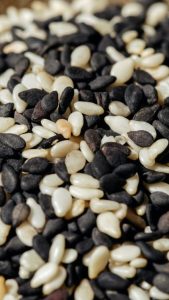 Why Invest in Sesame Seed Export?
Why Invest in Sesame Seed Export?
-
High global demand and steady price stability.
-
Large-scale availability in Nigeria.
-
Easy cultivation with minimal input.
-
Multiple value chains (oil, tahini, feed, cosmetics).
-
Strong profit margins for exporters.
Summary: Sesame seed export offers one of the most lucrative opportunities in Nigeria’s agricultural sector. With consistent global demand, multiple industrial applications, and Nigeria’s high-quality production, sesame remains a strong non-oil export commodity. By meeting international specifications, packaging properly, and connecting with reliable buyers, exporters can successfully penetrate markets in Asia, Europe, and the Middle East.

